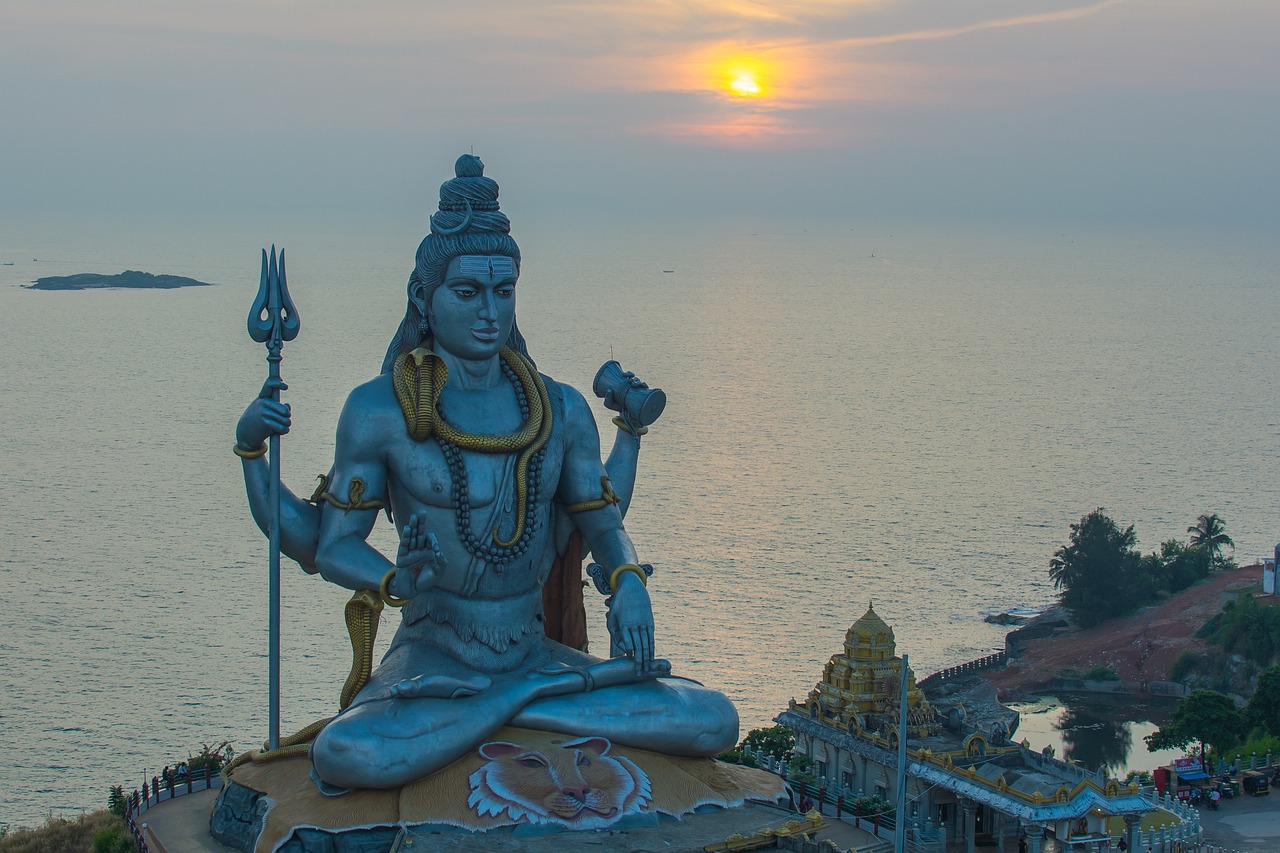# The Pantheon of Chinese Deities
The realm of Chinese deities represents a rich tapestry of traditional beliefs and practices, where various gods are worshiped across different religions. Chinese spirituality embraces a polytheistic nature rooted in the idea that divinity permeates all existence. These deities embody energies and principles that illuminate the celestial order, often interlinked with ancestral reverence, with many deities having ascended from human achievements.
At the heart of Chinese cosmology is Tian (天), or Heaven, a concept that denotes the supreme divine force governing the universe. In this intricate network of beliefs, every phenomenon has divine representation, leading to a sophisticated hierarchy of gods and spiritual entities, commonly referred to as the xian (仙) or immortals. The distinction between deities and immortals blurs, as both are seen as manifestations of life energy, or qì (氣), which further enriches the understanding of spirituality in Chinese culture.
## Understanding Divine Relationships
Unlike typical Western categorizations of religion, such as monotheism and polytheism, Chinese spirituality transcends these definitions, viewing Tian as a bridge connecting various divine entities and phenomena. This relationship introduces a unique theological perspective where all gods emerge from a common spiritual source, yet maintain distinct identities and attributes.
Despite their varied interpretations, there remains a sense of an organic unity among the deities, drawing from philosophical traditions that include Confucianism and Taoism. Here, the concept of Heaven evolves from a mere celestial body to an embodiment of all that exists, manifesting in multiple forms and deities that coexist within a single divine framework.
## The Divine Hierarchy and Names
The highest entities in Chinese spirituality are often referred to by multiple names. Among them, Shàngdì (上帝) denotes the “Highest Deity,” while Tàidì (太帝) translates to “Great Deity.” These deities manifest in celestial form, reflecting the five cardinal directions and governing natural elements. Specific names for the God of Heaven such as Tiāndì (天帝) and Tianzhu (天主) echo the multifaceted nature of this divinity that intertwines earthly and celestial realms.
In addition, various other significant deities exist, such as the Jade Emperor and Doumu, who personify concepts such as cosmic balance, life movement, and creation. These gods maintain an intricate interplay with the forces of nature, signifying both destruction and regeneration.
## The Role of Ancestors in Divine Worship
In Chinese religious practice, ancestral worship occupies a prominent position. Ancestors are not just remembered; they are revered as embodiments of Heaven within society. This connection is facilitated through altars and temples dedicated to both deities and ancestors, further emphasizing the importance of lineage and continuity within spiritual practices.
The decision to deify historical figures often arises from extraordinary deeds, resulting in a blending of mythology and history that characterizes the worship of deities throughout the ages. Confucianism advocates for state acknowledgment of revered entities, underscoring the societal and cultural dimensions of divine worship.
## Local Beliefs and the Adaptation of Deities
Chinese folk religions integrate various historical and cultural narratives, yielding a plethora of localized deities. These include village gods and nature spirits, with each having distinct characteristics reflective of their specific environments. Temples dedicated to these less prominent divine figures often reflect the historical context and regional variations in worship practices.
In northern China, the prominence of mother goddesses, such as Bixia, underscores the nurturing aspects of spirituality, while in northeast China, deities rooted in indigenous shamanistic practices signal a blend of local customs and broader Chinese cosmology.
## Conclusion
The vast array of deities within Chinese belief systems reveals a complex interaction of spirituality that honors both celestial and terrestrial phenomena. Through continues reverence, these deities remain a crucial part of the cultural identity, echoing the enduring connection between the people and their divine heritage.



